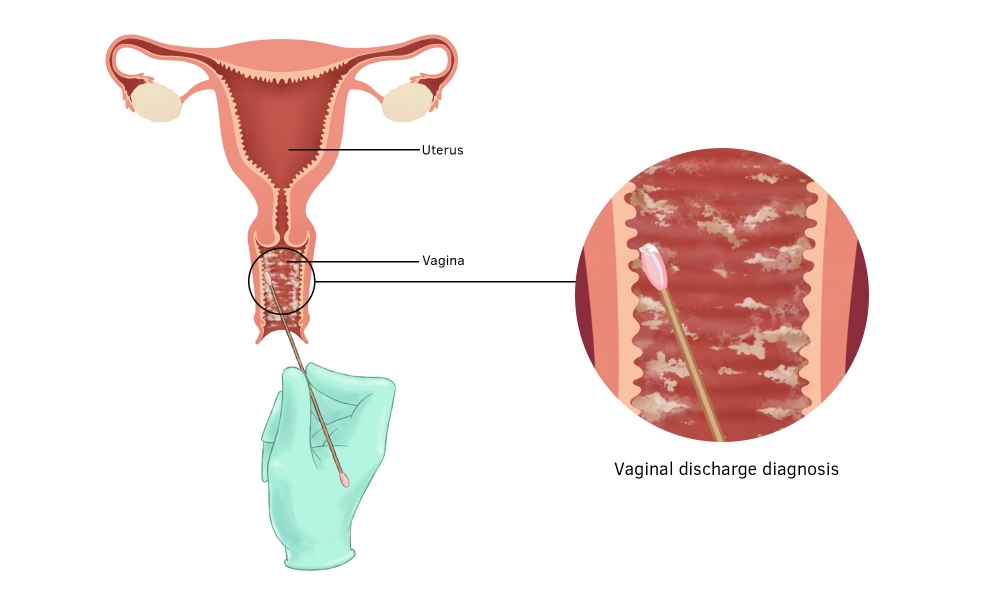PCOD, or Polycystic Ovary Syndrome, is a hormonal imbalance affecting millions of women worldwide. It disrupts the body’s natural rhythm, leading to a cascade of symptoms like irregular periods, unwanted hair growth, and weight gain. But what exactly causes PCOD? Buckle up, because researchers are still unravelling the complex web of factors at play.

What is PCOD and How Does it Work?
Before diving into the causes, let’s establish a basic understanding of PCOD. The ovaries are the powerhouses of the female reproductive system, producing eggs and hormones like estrogen and progesterone. In PCOD, a hormonal imbalance occurs, often with elevated levels of androgens (male hormones) like testosterone. This disrupts ovulation (egg release), leading to the formation of small cysts in the ovaries.
The Potential Culprits Behind PCOD:
The exact cause of PCOD remains a puzzle, but several factors are suspected to play a role:
- Genetics: A family history of PCOD increases your risk. Genes might influence how your body processes insulin and regulates hormones.
- Insulin Resistance: This is a key player. Insulin, a hormone, helps your cells absorb sugar from the bloodstream for energy. In PCOD, cells become resistant to insulin, leading to high blood sugar and increased insulin production. This excess insulin further disrupts hormone balance.
- Inflammation: Chronic low-grade inflammation in the body is linked to PCOD. This can be triggered by factors like excess body fat and contribute to insulin resistance and hormonal imbalances.
- Excess Androgens: As mentioned earlier, elevated androgen levels are a hallmark of PCOD. The reasons for this are still under investigation, but genetics and insulin resistance might play a role. High androgens contribute to unwanted hair growth, acne, and irregular periods.
Other Contributing Factors:
- Diet: A diet high in refined carbohydrates and sugary drinks can worsen insulin resistance. Conversely, a healthy diet rich in fruits, vegetables, and whole grains can be beneficial.
- Weight: While not always the case, weight gain can exacerbate insulin resistance and hormonal imbalances in PCOD.
- Stress: Chronic stress can disrupt hormone regulation and potentially worsen PCOD symptoms.
It’s Not Just One Thing:
The crucial point to remember is that PCOD likely results from a combination of these factors, not just one. The specific mix might vary from woman to woman.
Diagnosing PCOD:
If you suspect you might have PCOD, consult a doctor. Diagnosis typically involves a discussion of your medical history, a physical exam, and blood tests to assess hormone levels and insulin sensitivity.
There is Hope!
While there’s no cure for PCOD, you can effectively manage the symptoms and improve your overall well-being. Here are some approaches:
- Lifestyle Changes: A healthy diet, regular exercise, and stress management are crucial.
- Weight Management: Losing even a modest amount of weight can significantly improve insulin sensitivity and overall health.
- Medication: Doctors may prescribe medications to regulate hormones, manage blood sugar, and address specific symptoms like acne or unwanted hair growth.
Remember, you’re not alone!
PCOD is a common condition, and with the right information and support, you can take control of your health and live a fulfilling life. By understanding the potential causes, you can work with your doctor to develop a personalized management plan.
Additional Tips:
- Connect with Support Groups: Sharing experiences with others who understand can be incredibly empowering. There are online forums and in-person support groups available.
- Stay Informed: Research credible sources like medical journals, government health websites, and organizations dedicated to women’s health.
By taking charge of your health and working with your doctor, you can navigate PCOD with confidence.







